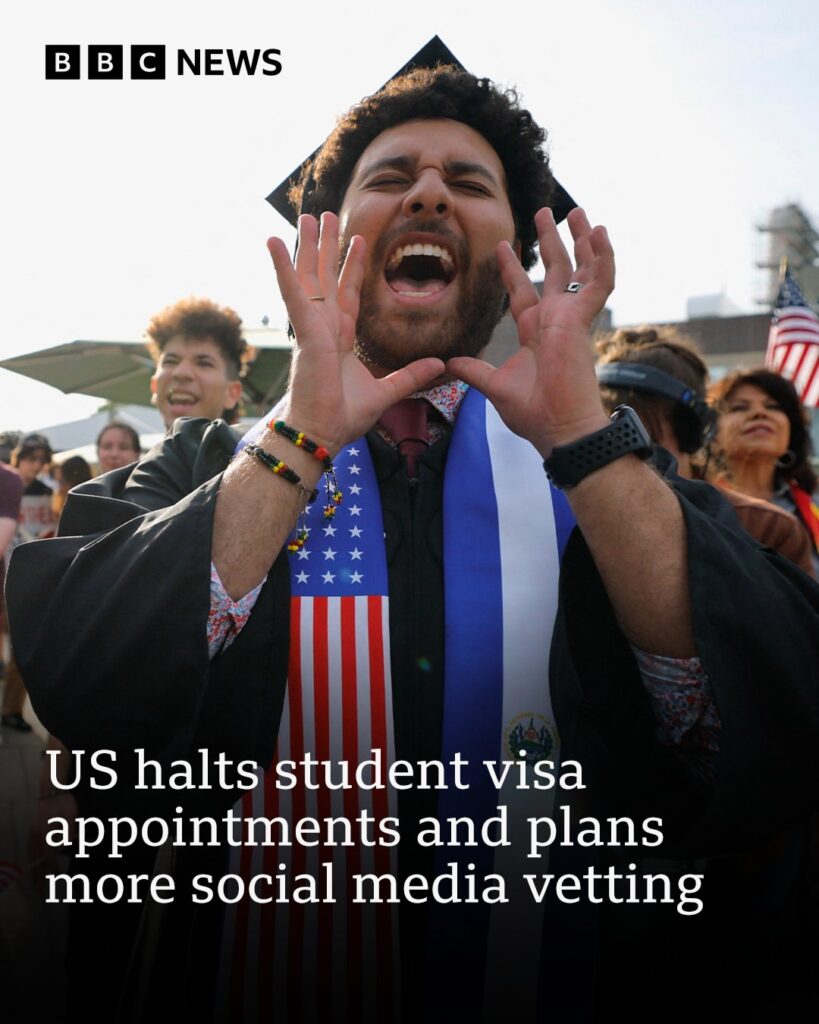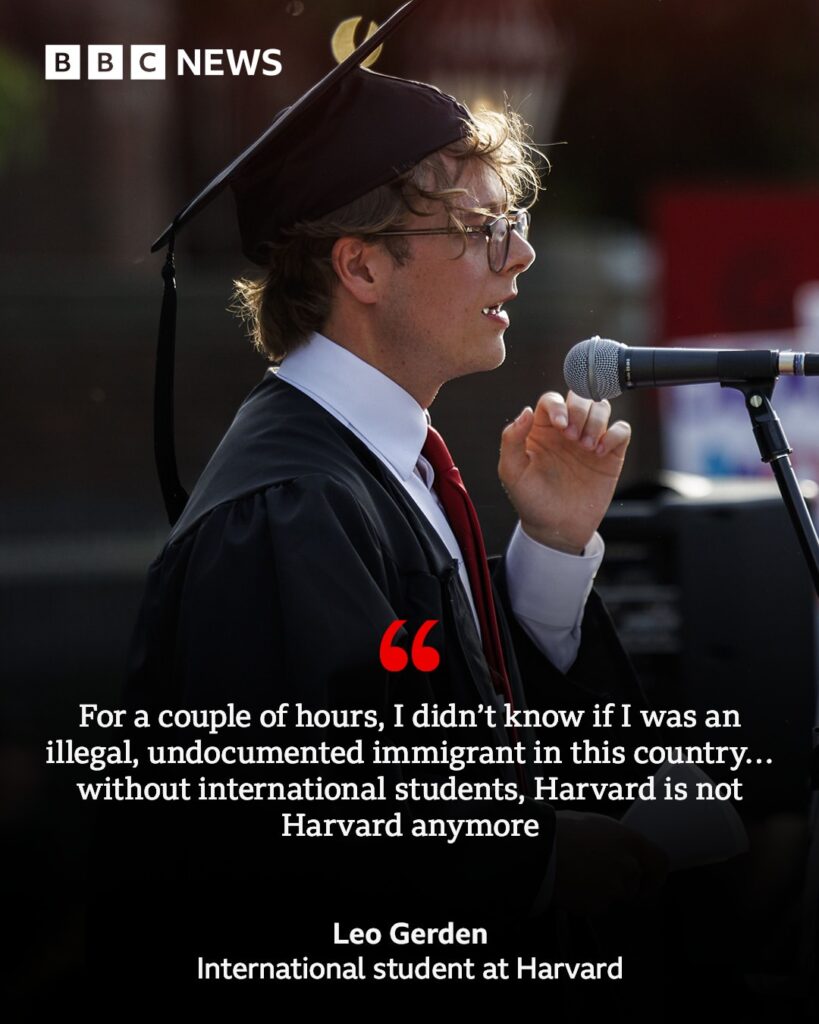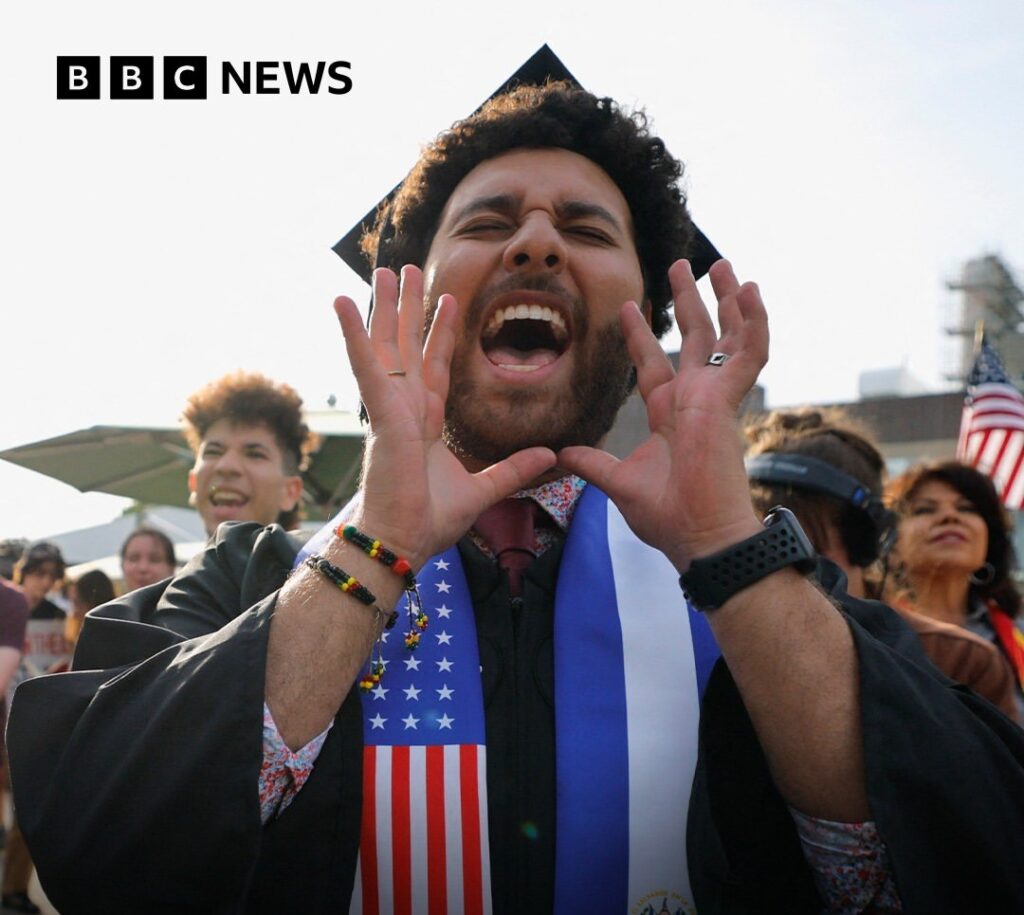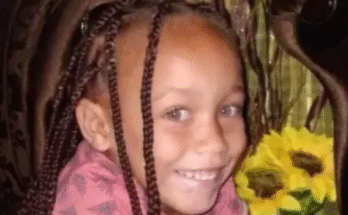
In a controversial move drawing criticism from educators, civil liberties groups, and foreign governments, President Donald Trump’s administration has ordered U.S. embassies worldwide to halt scheduling new appointments for student visa applicants. The decision, confirmed by internal State Department communications, is reportedly linked to upcoming changes in the visa screening process—particularly an expansion of social media vetting procedures for international students.
This latest directive, which effectively suspends the intake of new student visa applications, comes amid the administration’s broader push for stricter immigration controls and increased national security screenings. A senior State Department official, speaking anonymously, stated that the pause is “temporary but necessary” while embassies prepare for enhanced vetting measures, which are expected to roll out in the coming weeks.
Social Media Scrutiny to Intensify
The centerpiece of the new policy is a plan to significantly broaden the scope of social media screening for visa applicants. Under current regulations, applicants are required to disclose usernames for major platforms such as Facebook, Twitter, Instagram, and others from the past five years. The proposed changes would reportedly extend this requirement further, potentially including newer platforms, encrypted messaging services, and even past deleted content or private communications, where technically feasible.
A draft memo from the Department of Homeland Security obtained by media outlets suggests that U.S. authorities may begin using AI-powered tools to analyze applicants’ online behavior, political affiliations, and interactions in an effort to identify “red flags” or potential security risks. The administration argues that such measures are necessary to prevent extremists or individuals with harmful intentions from entering the country under the guise of education.
“National security is our top priority,” said White House press secretary Lauren Whitmore in a statement. “We are committed to ensuring that those who come to the United States to study do so with integrity, respect for American values, and no intent to cause harm.”
Impact on Students and Universities

The immediate consequence of the suspension has been widespread confusion and frustration among international students and educational institutions. Thousands of prospective students, many of whom had secured admissions at U.S. universities for the upcoming academic year, now face uncertainty about whether they will be able to enter the country in time.
Universities, already dealing with declining international enrollment in recent years, have expressed alarm. “International students contribute billions of dollars to the U.S. economy and enrich our campuses with cultural diversity and global perspectives,” said Dr. Rachel Lin, Director of Global Programs at the University of California, Berkeley. “Policies like this send a damaging message and hurt America’s reputation as a destination for higher education.”
According to the Institute of International Education, international students contributed over $40 billion to the U.S. economy in 2023, supporting more than 400,000 jobs. Any disruption to the flow of international talent is likely to have both economic and academic consequences.
Civil Liberties Concerns

Beyond the immediate logistical impact, civil rights organizations have raised red flags about the implications of expanded social media surveillance. Groups such as the American Civil Liberties Union (ACLU) argue that the vetting measures are overly invasive, discriminatory, and unlikely to be effective in identifying real threats.
“This policy is a violation of privacy and a step toward ideological screening,” said Faiza Patel, Director of the Liberty and National Security Program at the Brennan Center for Justice. “There is no clear evidence that analyzing someone’s Instagram posts or Twitter likes will predict whether they pose a threat. What it will do is deter talented students from applying and cast suspicion on people based on their religion, language, or political views.”
Looking Ahead
It remains unclear how long the suspension of student visa appointments will last, though embassies have been told to expect implementation guidance “within 30 to 45 days.” For many, this window threatens to collide with university start dates and travel deadlines.
As the Trump administration continues to redefine immigration and border control policies, the future for international students in the U.S. hangs in the balance. For now, students across the globe must wait—and watch their timelines, and perhaps their timelines on social media—more closely than ever before.



